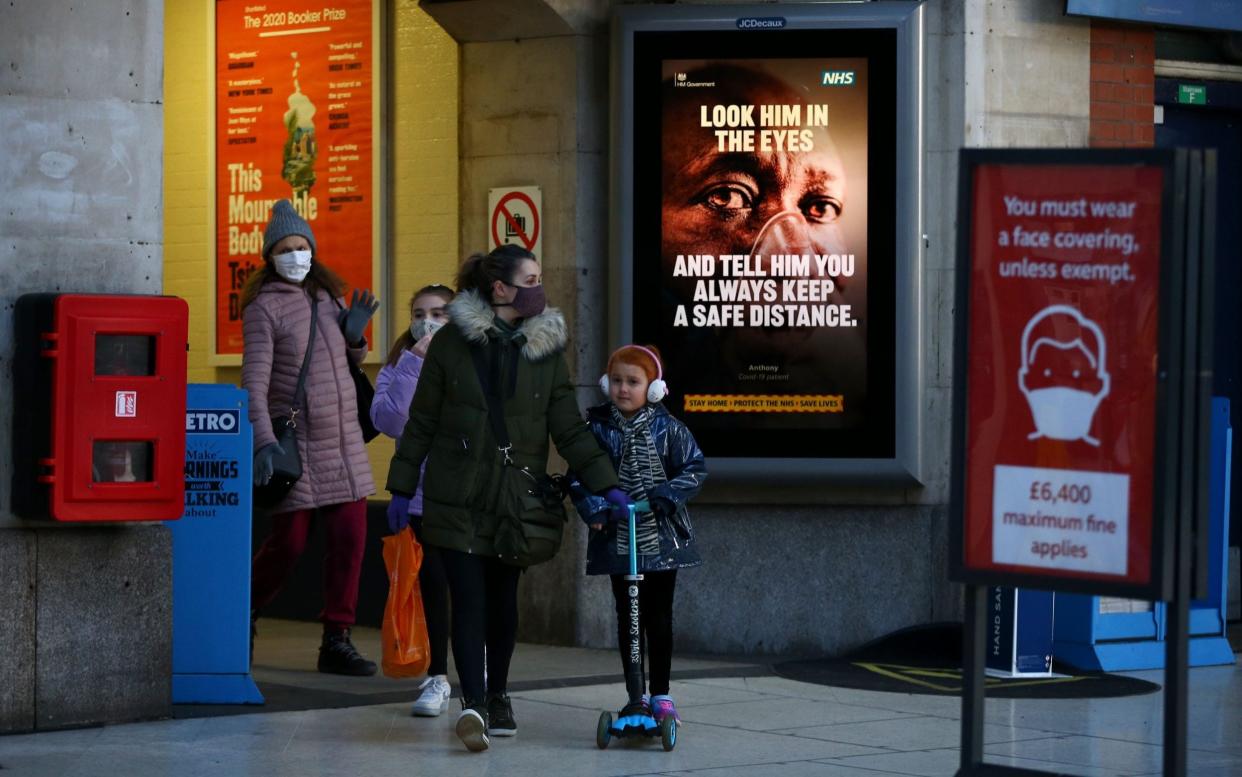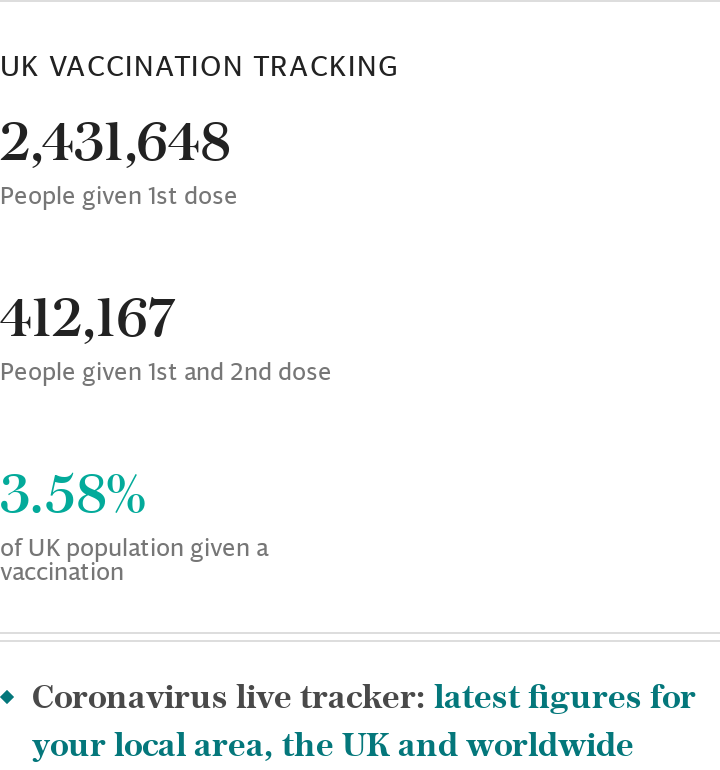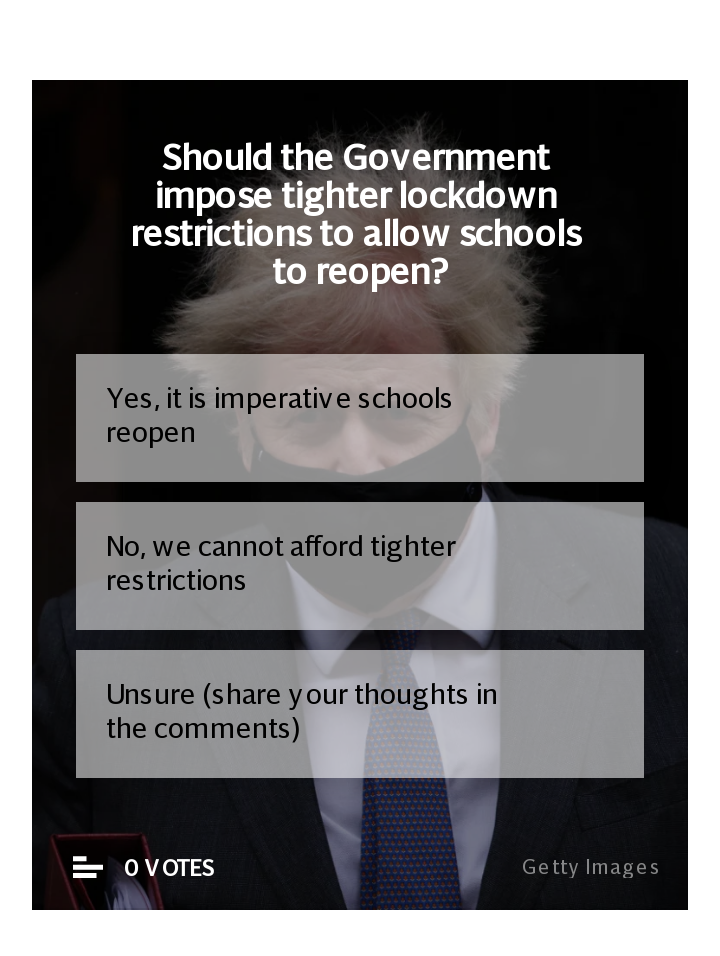Boris Johnson fights to reopen schools before Easter


Boris Johnson is fighting to get schools open before Easter amid growing concerns over the damage being done to a generation of children by the third coronavirus lockdown.
Government sources said on Monday night that mid-March is now viewed by ministers as the target deadline by which to reopen schools.
Confirmation is expected this week that hopes of children returning to the classroom after the February half-term break will not be met. Labour will table an urgent question in the Commons on Tuesday to demand answers on the Government's plan.
Public Health England said there was a “strong case” for primary schools to restart after half-term if cases continue to fall. During the autumn term, outbreaks were detected in just 3 per cent of primary schools, with most cases recorded in teachers, not pupils, PHE found.
Watch: UK Schools to Reopen ‘As Fast As Possible’, says Johnson
It comes as a further six Tory MPs on Monday joined the campaign group UsforThem, which calls for schools to fully reopen or for ministers to quantify the harms and benefits of the schools shutdown, taking the total number of Conservatives opposing the prolonged closures to 17.
Jonathan Gullis, a former teacher who was among the new additions, said: "The attainment gap between disadvantaged pupils and their peers will undo the hard work of the past 10 years and widen it yet further, and set the levelling-up agenda back."
Meanwhile, Robert Halfon, the Tory chairman of the Commons education committee, has written to the joint committee on vaccination and immunisation (JCVI), urging it to consider teachers as a top priority for jabs in a bid to get schools open. The letter, seen by The Telegraph, has been signed by 10 other MPs, including the former health minister Steve Brine.
The latest Covid figures show that case rates are down in every region, with most now at their lowest since before the start of the year. Some regions, such as London, are at a lower rate than in December, when schools were open. The daily case number on Monday was 22,195 – a significant fall on recent days.
Watch: Matt Hancock - We are stronger as one United Kingdom
However, Matt Hancock, the Health Secretary, used a higher, seven-day average for new daily Covid cases at a Downing Street press conference on Monday night and reiterated that case rates will not be a criterion to judge when to ease the lockdown.
Death rates, hospitalisation figures, the emergence of new variants and the progress of the vaccine rollout remain the four key factors, Mr Hancock said.
On Monday, Mr Johnson raised hopes that some restrictions could be eased next month, saying: "The JCVI groups one to four are going to be vaccinated by February 15. Before then, we'll be looking at the potential of relaxing some measures."
However, Number 10 sources later insisted the Prime Minister meant that the Government would continue to review data but would not change any rules before mid-February.
The Telegraph understands that ministers may have to wait to see some key information about the vaccine programme before any restrictions can be eased.

Health sources said that data on whether the approved jabs prevent transmission of the virus will not be available until the end of February, although Downing Street denied this.
Some scientific advisers to the Government believe schools cannot reopen by mid-February because they could add up to 0.4 to the 'R' number, which only last week fell to between 0.8 and one thanks to lockdown restrictions, according to a source.
Opening schools before the 'R' rate is low enough to remain below one when an additional 0.4 is added to it would see the virus spiral exponentially once again, the scientists fear.
Separately, a member of the Sage advisory committee told The Telegraph that sub-groups are currently examining the impact of reopening schools.
"With the best will in the world, I can't see how we can be in a position of reopening schools after half-term. My fear is if we open them they will shut again," the Sage member said. "It's not just about getting cases down, it's about relieving pressure on hospitals and then having enough in the 'R' budget to open schools. So to me we've got to wait a few weeks where we can reopen them and they stay open for the rest of the year."
They also suggested that the easing of lockdown restrictions could happen from early April but was likely to be a gradual relaxation that could span the summer and added: "No one would advocate getting to April and then opening everything."

When schools do reopen, primary school pupils could be the first to return to the classroom under plans being considered by ministers.
Early discussions about which age groups should be brought back the earliest when schools reopen are under way among Government officials, according to education insiders.
Children aged four and five are understood to be seen as a priority for returning to school on the basis that the loss of learning and development is particularly acute for this age group.
Students in Year 11 and Year 13, who would have taken GCSEs and A-levels at the end of the year and will now be handed teachers’ predicted grades, are also seen as priority groups for secondary school return.
Mr Halfon has urged ministers to publish a "route map" for schools to return, and said: "Just because you can't open every school, that doesn't mean you shouldn't open any. You could have regional variation, or primaries first, or year groups starting one at a time. We should be looking at all the options."
Watch: What UK government COVID-19 support is available?

 Yahoo News
Yahoo News 
